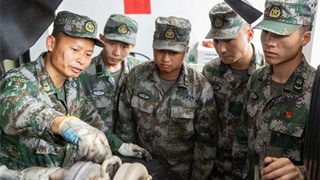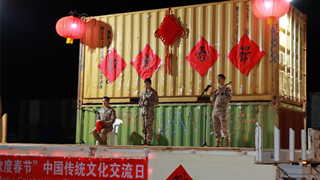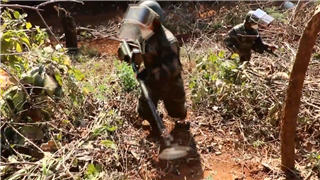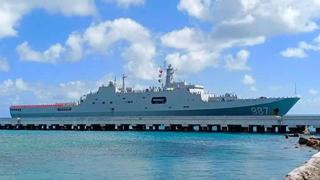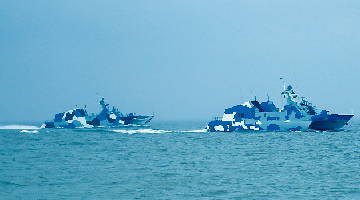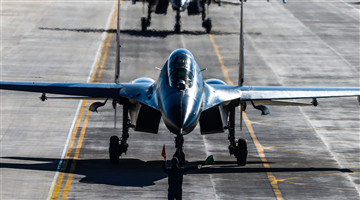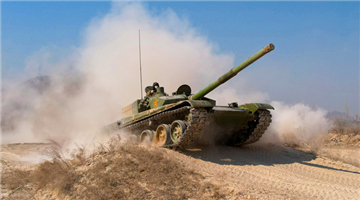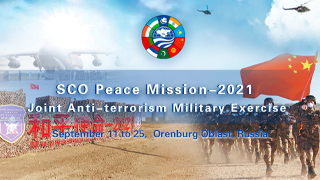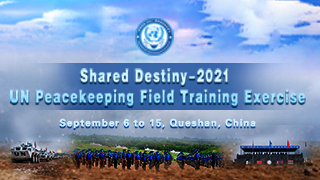By Guo Xiaobing
Former Japanese prime minister Shinzo Abe recently urged the US side to discuss the possibility of sharing nuclear weapons with Japan on a public occasion. This should raise an alarm even though the incumbent prime minister Fumio Kishida on March 1 rejected the idea of hosting US nuclear weapons on Japanese soil and pledged to maintain the Three Non-Nuclear Principles. It's not the first time that Japanese right-wing politicians blabbered about possessing and manufacturing nuclear weapons, but no substantial progress has been made so far because of the strong anti-nuclear sentiments at home.
What exactly does "nuclear sharing" mean? It is a mechanism of sharing nuclear risks and responsibilities within the NATO framework initiated by the US to placate NATO members and increase the credibility of its nuclear protection. According to the arrangement, the US can deploy nuclear weapons within its European allies, which will be under American control and custody in peacetime but mounted on European warplanes at wartime and controlled by pilots from non-nuclear-weapon countries. At the moment, America’s tactical nuclear weapons are deployed in five non-nuclear states – Belgium, Germany, Italy, the Netherlands and Turkey, coupled with those from the UK and France that NATO takes as a supplement.
What's behind Japan's eagerness for "nuclear sharing" then?
First of all, it means Japan will break the Three Non-Nuclear Principles and bring home American nuclear weapons. Although the US-Japan nuclear pact allows American warships carrying nuclear weapons to stay at Japanese ports, Japan has never openly violated the nonnuclear principles in the past half-century and more. Yet a so-called "nuclear sharing" is bound to allow the deployment of America's strategic nuclear submarines and bombers or tactical nuclear warheads within Japanese borders, which would be a downright breach of Japan's commitment to not introducing nuclear weapons to the country.
Second, it means Japan will be able to control and use America's nuclear weapons during wartime. If – like in Europe – the US did deploy tactical nuclear warheads in Japan, then Tokyo would be allowed to control and use them once they were mounted on Japanese warplanes to carry out missions with Pentagon's nuclear code in wartime, rendering the commitment to non-possession of nuclear weapons meaningless. That would also contravene the Treaty on the Non-Proliferation of Nuclear Weapons (NPT) that stated "nuclear weapon states pledge not to transfer nuclear weapons or other nuclear explosive devices to any recipient...non-nuclear-weapon states pledge not to acquire or exercise control over nuclear weapons or other nuclear explosive devices".
Third, it means American nuclear weapons will reappear on the Korean Peninsula and Taiwan island. Once Japan's attempt at "nuclear sharing" comes through, that would create a precedent for America to re-deploy nuclear weapons in Asian Pacific countries or regions. The worry is well-grounded. More than half of ROK residents welcome the idea of deploying American nuclear weapons in their country; some conservative American scholars even suggested Taiwan should seek "Taiwan independence" with nuclear forces.
At last, it means Japan will be bolder in discussing the development and commissioning of nuclear weapons. From Abe's grandfather Nobusuke Kishi to the grandson himself, numerous right-wing politicians have claimed that the Pacifist Constitution doesn't ban Japan from owning nuclear weapons. They have been constantly fiddling with nuclear topics in order to, over time, phase out the non-nuclear tradition from the Japanese society, get Japanese people to gradually see nuke-possessing as something normal and necessary for national security, and see nuke deployment as a reasonable arrangement, so much so that they wouldn't be surprised or worried about Tokyo's development of nuclear weapons when the day comes.
As a matter of fact, Japan has always maintained the economic and technological capability to manufacture nuclear weapons under the disguise of a "non-nuclear" policy. Being the only non-nuclear-weapon state that is recycling nuclear fuel, the country has stocked up a huge amount of weapon-grade fission materials enough to make thousands of nuclear warheads. It is also developing hypersonic missiles that will add a wing to its advanced space launching ability. It is indeed not that difficult for Japan to cross the nuclear threshold and become a nuke developer.
Abe's clamoring about "nuclear sharing" is in a way to sway or influence Kishida's diplomatic and security policies, and his remarks carry weight that should not be underestimated given his leading the Hosoda faction , the largest faction of Japan's ruling Liberal Democratic Party, and his brother Nobuo Kishi being the defense minister. Some analysts even guessed a possible comeback of Abe to run for a new presidency considering he has kept himself busy after stepping down the last time. That gives us more reasons to worry whether his assertions about nuclear weapons would be put into practice and consequently overhaul Japan's nuclear policy.
(The author is director of Center for Arms Control Studies, China Institutes of Contemporary International Relations)
Editor's note: This article is originally published on huanqiu.com, and is translated from Chinese into English and edited by the China Military Online. The information, ideas or opinions appearing in this article do not necessarily reflect the views of eng.chinamil.com.cn.

